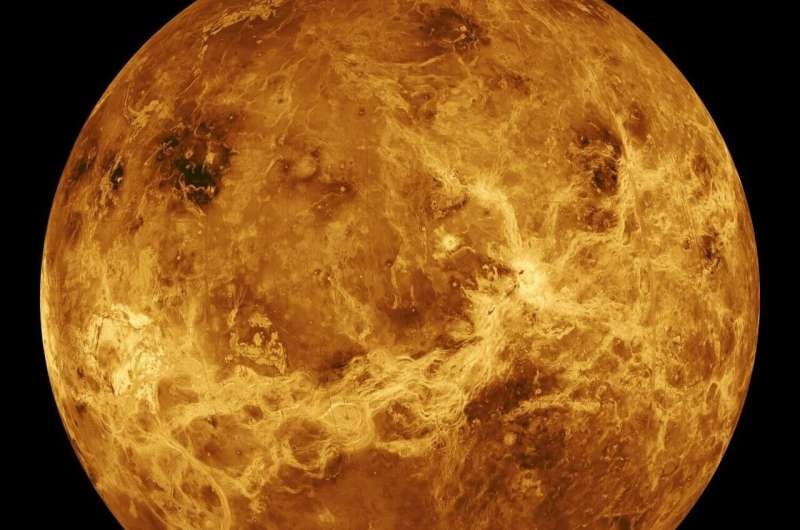A new study suggests that simple lipids can form stable structures in the harsh, sulfuric acid-rich atmosphere of Venus, potentially opening up the possibility of life existing in the planet’s cloud layers.

Living Through the Venusian Inferno
Venus is known to be a planetary example of hellscape, with a surface temperature that can melt lead and having an atmosphere composed mainly of carbon dioxide along with sulfuric acid. But this new study is another sign that the upper atmosphere of Venus might not be such as dead zone after all.
The Chicago researchers, led by Daniel Duzdevich, wanted to know what happened when lipids — the basic ingredients in cell membranes — were dropped into sulfuric acid at a high concentration. Lipids are essential for life because they form the membrane which separates the inside of a cell from outside variety Some simple lipids, the researchers discovered, not only survive sulfuric acid but also assemble into stable structures with higher levels of complexity similar to those found in cell membranes.
Rethinking the Limits of Life
The find goes against the typical thinking that life can only exist in water-worlds. Most life as we know it is dependent on water, for this reason the researchers could have drawn a conclusion here, but they said that other solvents like sulfuric acid might work to support such life-chemistry at least in principle.
According to the authors, concentrated sulfuric acid—in form of the clouds of Venus—may be a widespread phenomenon on exoplanets, be it in venusian-like planetary bodies or in desiccated rocky worlds. This work shows that even in such a harsh solvent, there is a possibility of having lipid membranes as stable so it also gives better hope to find extra-terrestrial life.
They may also affect what we know of the boundaries of life or concerning the circumstances that led to the emergence and sustenance of living systems. The study upends the long-held notion that water is an essential liquid of life, and suggests instead that we may need to expand our current environment Class M search for habitable environments away from a waterbased definition.
Conclusion
Our work on the stability of lipids under Venus-like cold high-pressure conditions establishes a solid footing for further exploration into whether planets, moons and small rocky planetary bodies are habitable. In short, we still cannot say for certain whether life could survive in the clouds of Venus, but this work underscores hesitation that all is not yet lost from some of lifes basic ingredients and hopeful that new frontiers are rich with astrobiological ripe fruit. Advances like this one are a useful reminder that, as we push back the frontiers of our understanding about where and what life is, the hunt for alien life could reveal wholly stranger truths.
